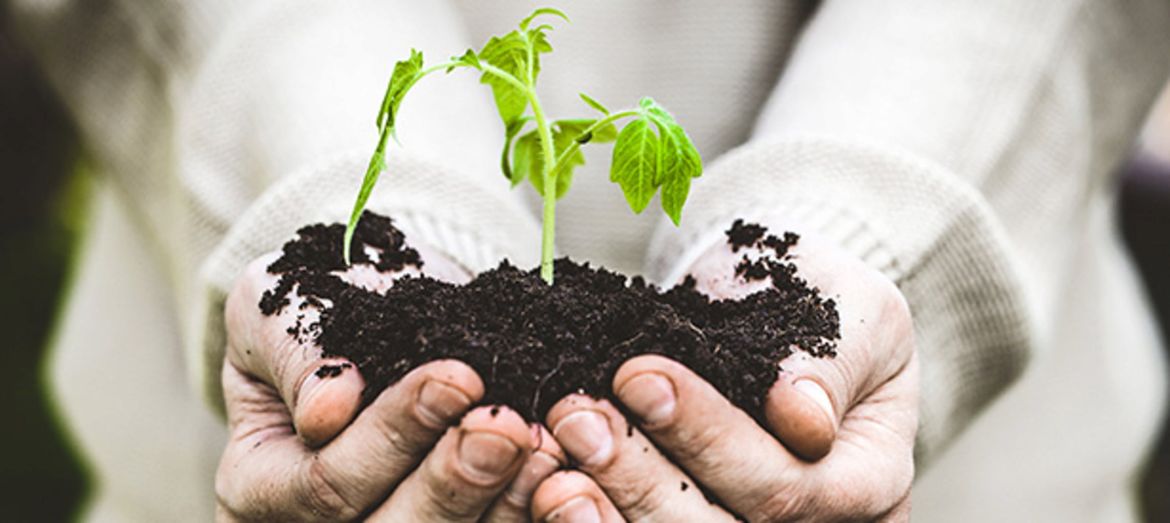Ideas for Sustainable Gardening
Sustainable gardening means working in a smart and environmentally friendly way. It's about giving back to Mother Nature by using natural farming methods and fewer chemicals.
Sustainability is not only a one-time thing. It's a lifestyle that promises significant long-term benefits to both your health and your wallet.
Here are some great sustainable gardening ideas to try in your garden.
The right garden design
If you're thinking about getting into sustainable gardening, it is a good idea to incorporate resource-efficient gardening practices to protect your plants and soil. There are many water conservation and soil preparation practices you can incorporate into your garden design to make it greener and reduce the impact on the environment.
Sustainable design is pretty comprehensive. When planning your garden, think about the different plants that you will want to grow. Shade-loving plants should be planted in the shade of tall, lush plants where they will get little sun. Plants that love the sun should be planted in sunny spots where they can indulge themselves. Plants that crave water should be planted in moist areas of the garden, keeping them healthy with minimal maintenance.
If you plan all of these points in advance, you will save a lot of effort and have more time to enjoy your healthy garden.
Compost your green waste
One of the best sustainable gardening practices is composting, which is the recycling of food and other natural waste to later use as organic fertiliser. Instead of throwing away dead leaves, flower heads, and clippings, you can compost everything into nutrient-rich, organic fertiliser for your garden. This naturally enriches the soil with nutrients and makes vegetables healthier and tastier. Indeed, making your own compost is critical to both organic gardening and sustainable living. Composting leftover food, garden waste, and other biodegradable materials at home will also reduce waste and move closer to a waste-free lifestyle.
Save water
A sustainable gardener conserves scarce resources by using water butts to collect rainwater. This is then used to water their flowers. The ultimate goal of a sustainable gardener should be to use only natural water sources. In areas where rain is scarce, watering the garden should be done with a watering can rather than using automated systems such as lawn sprinklers. The latter, while faster, also lead to a lot of wasted water.
Keep seeds
When your flowers and vegetables are ripe, they will produce seeds. Collect these seeds and store them in a cool, dry place. You can use them in the spring of next year. It is best to start with varieties whose seeds are easy to store, such as tomatoes, peas, beans and peppers.
Plant native plants
Native plants are plants that grow naturally in your area. It is easier to grow and maintain these plants because they are already adapted to the rainfall, soil, and climate. Native plants require less effort and even less water for maintenance and growth. In addition, by growing native plants, you are also helping to protect the birds and insects in your area by providing them with food and shelter.
Plant highly resilient, water-saving plants
Of course, you don't have to have only native plants in a sustainable garden. Another way to conserve resources while having a beautiful garden is to plant high-tolerance plants that require less maintenance and watering. These plants include the honeybush or the Monterey cypress, both of which are perfect for a beautiful, climate-friendly garden.
Avoid herbicides
It is best to use sustainable methods to maintain the garden. Instead of using chemical herbicides, use organic methods to control weeds and pests. Pull weeds out yourself, which is not only greener, but also a brief burst of excercise.
Beneficial insects get rid of pests
Beneficial insects are nature's perfect way to control pests without the use of harmful chemicals. These insects will eat caterpillars, mites, aphids, and other vermin that infest the plants, and the best part is that they are completely harmless to pets and humans.
Ladybirds are a great example of this. They are not only cute and good luck charms, but they also love to eat aphids!
Just look online to find the right solution for your pest problem.
Mulching
Another important technique gardeners can use to create low-maintenance, healthy gardens is mulching. Mulching has a number of benefits:
- prevents the soil from drying out
- suppresses weeds
- moderates the soil temperature
- reduces soil compaction
- supplies the soil with nutrients
- prevents erosion
- contributes to the ambience of the garden
You can mulch as soon as you have planted something, but you can also mulch to cover the bare soil in the garden. It is one of the most important techniques for a sustainable garden.
And that's it: our simple tips for a more sustainable garden. But there are still a myriad of creative possibilities to make your own garden more sustainable and to give it a personal touch. Gardening is a wonderful hobby that promises exercise, healthy eating, and environmental benefits. Have fun!
Latest reviews
-
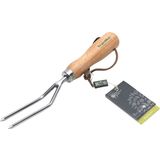 € 17,09
€ 17,09Delivery by October 11
-
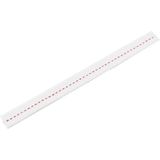 € 1,49
€ 1,49Delivery by October 18
-
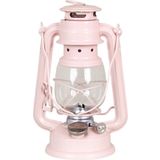 4.0 (2)
4.0 (2)Strömshaga "Hurricane" Petroleum Lamp, small, Pink
-7%- Pink
- Dark blue
- Classic design
- Beautiful colour selection
- For indoor & outdoor use
€ 25,65 € 27,49Delivery by October 11
-
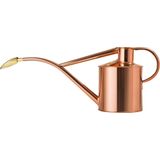 3.7 (3)
3.7 (3)HAWS Classic Indoor Copper Watering Can - 1 L
- For controlled pouring
- Elaborate manual work
- Makes a charming decoration
€ 95,49Delivery by October 11
Magazine Articles:
-
Austria: Free standard delivery from € 39,90
-
Free
returns -
24-hour shipping
More than 11.800 products
